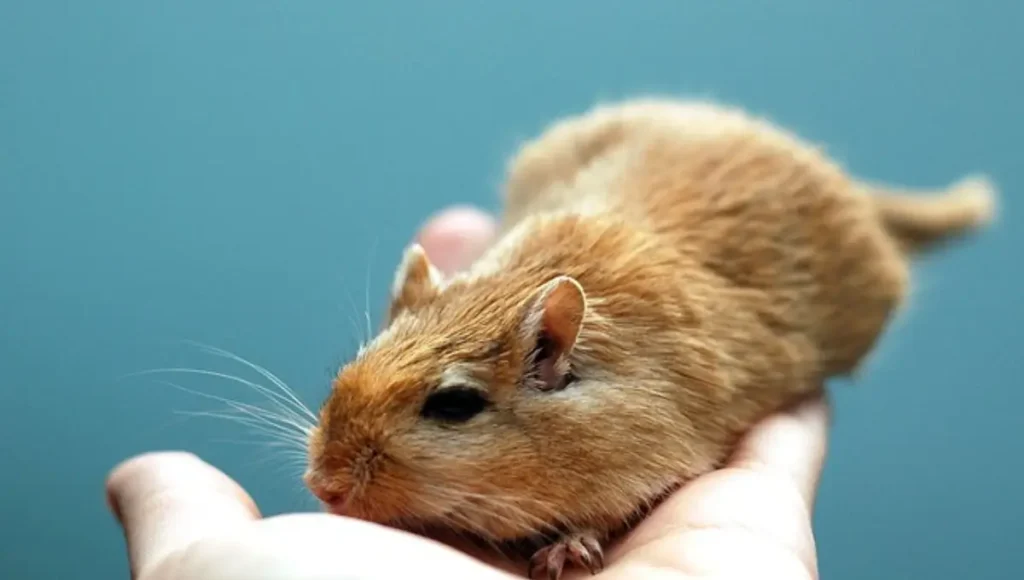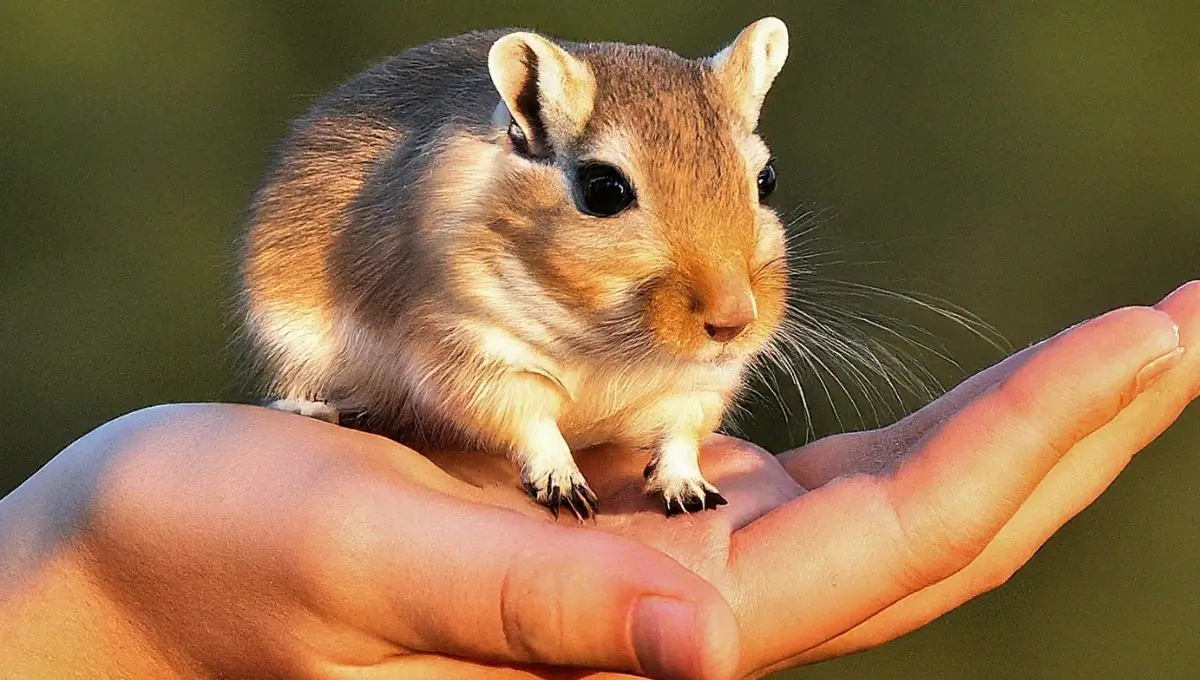Gerbils, with their curious eyes and twitching whiskers, have charmed their way into the hearts of pet lovers worldwide. These small, desert rodents are known for their playful nature and intriguing behaviors, making them fascinating companions.
However, one question that often arises among gerbil enthusiasts and prospective pet owners alike is, “Do gerbils like to be held?” This article delves into the world of gerbils, exploring their behavior, interaction with humans, and providing insights into forming a bond with these adorable creatures.
Understanding Gerbil Behavior
To truly grasp whether gerbils enjoy being held, it’s essential to first understand their behavior and social nature. Gerbils are inherently social animals, thriving in groups in the wild. This social structure is not just about companionship; it’s a survival mechanism that influences their behavior in captivity as well.
Social Nature of Gerbils:
In the wild, gerbils live in close-knit communities, often consisting of family groups. This social living arrangement is crucial for their well-being, which is why it’s recommended to keep them in pairs or small groups in captivity. Isolated gerbils can exhibit signs of loneliness and stress, underscoring the importance of their social nature.
Gerbil Personality Differences:
Just like humans, each gerbil has a unique personality. Some may be outgoing and adventurous, while others are shy and reserved. These personality traits play a significant role in how they interact with their human caretakers. An adventurous gerbil might be more open to being held, whereas a shy one might need more time to warm up to the idea.
How Gerbils Communicate Comfort and Discomfort:
Gerbils communicate their feelings through body language and vocalizations. A relaxed gerbil, comfortable with being held, might show signs like calm breathing, gentle exploration, or even falling asleep in your hands.
On the other hand, a stressed gerbil might try to escape, freeze, or exhibit thumping with its hind legs. Observing these cues can help you understand your pet’s comfort level with being held.
Gerbils and Human Interaction
The key to a positive interaction with a gerbil, including holding, lies in the bond you build with them. This bond is founded on trust, patience, and understanding of their needs and comfort zones.
Gerbils’ Reactions to Being Held:
Not all gerbils react the same way to being held. Their reaction can depend on their personality, past experiences, and how they’ve been introduced to human interaction. A gerbil that has had positive experiences with humans from a young age is more likely to enjoy being held.
Importance of Gentle Handling:
Gentle handling is crucial when interacting with gerbils. Their small size makes them delicate, and rough handling can lead to fear or even injury. Always approach your gerbil calmly, letting it sniff your hand before attempting to pick it up. This slow and gentle approach reassures your gerbil that it’s safe with you.
Building Trust with Your Gerbil:
Trust is the foundation of any interaction with your gerbil. Start by spending time near their enclosure, talking softly to get them used to your presence and voice. Offer treats from your hand to encourage them to come closer. Over time, as your gerbil begins to associate you with positive experiences, it will be more open to being held.
Understanding gerbil behavior and their reactions to human interaction is the first step toward forming a meaningful bond with these delightful pets.
By respecting their personalities and comfort levels, you can enjoy the rewarding experience of holding and interacting with your gerbil in a way that’s enjoyable for both of you.
Also read: How To Take Care Of A Gerbil?
Nurturing a Close Bond with Your Gerbil: The Joy of Holding

Forming a bond with your gerbil that includes holding and cuddling requires patience, understanding, and a gentle touch. Here are some tips to ensure that your interactions are both safe and enjoyable for your furry friend.
Proper Ways to Pick Up and Hold a Gerbil:
To pick up a gerbil, gently scoop it from beneath with both hands, allowing it to sit in the palm of one hand while the other gently secures it from the top. Ensure your grip is firm enough to prevent falls but gentle enough not to cause stress. Holding your gerbil close to your body can also help it feel more secure.
Signs of a Comfortable Gerbil:
A gerbil that feels safe in your hands might show signs of relaxation such as grooming itself, nibbling gently on your fingers, or exploring your hands and arms with curiosity. Some gerbils may even close their eyes or doze off, indicating they feel completely at ease.
What to Avoid When Handling Gerbils:
Avoid picking up a gerbil by its tail, as this can cause injury and stress. Sudden movements or loud noises can also startle your gerbil, so it’s important to maintain a calm environment. If your gerbil attempts to jump out of your hands, lower it gently back into its enclosure rather than restraining it forcefully.
Gerbils’ Affection: Myth vs. Reality
While gerbils may not show affection in the same way dogs or cats do, they have their unique ways of expressing trust and comfort with their human companions.
Do Gerbils Show Affection to Humans?
Gerbils can form strong bonds with their owners, showing affection through their willingness to be held, gentle nibbling, and seeking out your company. Recognizing these subtle signs of affection is key to understanding and appreciating your relationship with your gerbil.
Also read: How To Stop Gerbils Smelling?
Understanding Gerbils’ Unique Ways of Expressing Affection:
Gerbils express affection by engaging in playful behavior, following you around, and showing excitement when you approach their enclosure. They may also communicate their affection by “talking” to you through soft chirps, indicating they’re happy to see you.
Creating a Bond with Your Gerbil
Building a deep, meaningful bond with your gerbil enhances the pet ownership experience, making it more fulfilling for both you and your gerbil.
Spending Quality Time with Your Gerbil:
Dedicate time each day to interact with your gerbil outside of its enclosure in a safe, gerbil-proofed area. This allows your gerbil to exercise, explore, and spend valuable time bonding with you.
The Role of Patience and Consistency:
Patience is crucial when forming a bond with your gerbil. Some gerbils may take longer to trust and feel comfortable with being held. Consistent, gentle interaction helps build this trust over time, creating a strong foundation for your relationship.
Activities to Build a Stronger Bond:
Engage in activities that both you and your gerbil enjoy, such as creating obstacle courses, providing new toys for exploration, or simply allowing your gerbil to sit with you while you read or watch TV. These shared experiences strengthen your bond and provide your gerbil with mental stimulation and physical exercise.
Forming a bond with your gerbil that includes holding and affection is a rewarding journey that enriches the lives of both pet and owner.
By understanding your gerbil’s needs, respecting its personality, and providing consistent, gentle care, you can enjoy the unique companionship that these charming little creatures offer.
FAQs
Do Gerbils Like to Be Petted?
Yes, many gerbils enjoy being petted once they’re comfortable with their human companions. Gentle strokes along their back can be soothing for them. However, it’s important to let the gerbil approach you first to ensure it feels safe.
How Often Should I Hold My Gerbil?
You can hold your gerbil daily as part of your bonding routine, provided it seems comfortable and willing. Regular, gentle handling helps build trust and can make your gerbil more accustomed to human interaction.
Can Gerbils Recognize Their Owners?
Gerbils have a good memory for scents and can recognize their owners through smell. They may also associate their owners with positive experiences like playtime and treats, further strengthening this recognition.
What Are the Signs That a Gerbil Is Stressed or Scared?
Signs of a stressed or scared gerbil include trying to escape, freezing, thumping its feet, or biting. If you notice these behaviors, give your gerbil some space and time to calm down before attempting to interact again.
Conclusion
Gerbils are fascinating and affectionate pets that can form deep bonds with their owners. Understanding their behavior, respecting their space, and patiently building trust are key to a rewarding relationship.
Whether it’s through gentle petting, daily handling, or simply spending quality time together, the connection you forge with your gerbil can be incredibly fulfilling. Remember, every gerbil is unique, and learning to read their cues will help you understand their preferences for affection and handling.
With time and patience, you’ll discover the joy and companionship these small creatures bring into your life, making every moment spent together precious.











